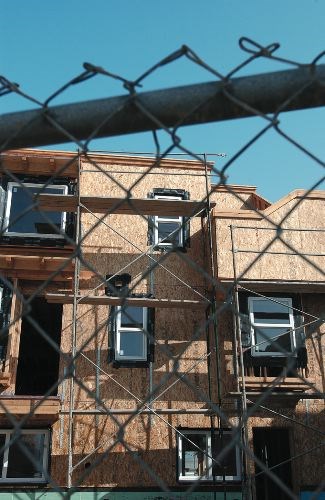The Federation of Canadian Municipalities is calling on the federal government to help communities address a critical shortage of
affordable rental housing.
In a press conference in Ottawa on Tuesday, FCM president Berry Vrbanovic said rising housing costs and tighter mortgage rules are meaning more Canadians are looking to rent. While an average of 50,000 additional families will be looking to rent each year, only 15,000 to 20,000 purpose-built rental units are being built annually. Much of the new construction in rental housing has been focused on social housing, rather than regular marketing housing.
"Canada must jump start its rental housing market. Really, the rental housing market is something we've seen decrease across the country... from our smallest towns to our largest cities," Vrbanovic said. "Canada needs more affordable rental housing. Local governments have taken steps to increase the supply of rental and affordable housing."
Vacancy rates in communities across the country have dropped below three per cent, making finding accommodation difficult. According to the Canadian Mortgage and Housing Corp.'s biannual report in Oct. 2011, the national average vacancy rate for all housing types was 2.5 per cent.
Investing in constructing new rental housing will contribute to construction jobs and ensure Canadian cities can remain competitive places for skilled workers to locate, Vrbanovic said.
The Federation of Canadian
Municipalities, which represents local governments across Canada, is proposing: low-interest loans be provided for organizations looking to build rental accommodations; tax credits for new and existing operators of rental housing; and a grant program to increase energy efficiency for rental building operators. The federation estimates the costs of the proposed programs at $400 million per year.
"What we're really looking at here is a number of high-impact, low-cost solutions," Vrbanovic said.
Brampton, Ont. Mayor Susan Fennell, who chairs the housing working group for the Big Cities Mayor's Caucus, said local governments can't solve the problems on their own.
"We can't get the rental housing market working on our own," Fennell said. "What's essential is all orders of government recognize the problems. ... We need to keep working together."
Failing to address the need for affordable, rental housing will hurt Canadian city's competitiveness
internationally, Fennell added.
Prince George
plan underway
The City of Prince George's Beyond Homelessness Standing Committee is working to develop a plan to address the need for affordable rental housing, city acting manager of communications and citizen
engagement Chris Bone said.
Bone, who co-chairs a working group looking to develop a comprehensive housing strategy for the city, said there is a need for
affordable rental housing in the city.
"We know there are populations which have difficulty accessing affordable, safe rental housing - seniors, people with disabilities," Bone said.
While Prince George's vacancy rate remains above the national average - 4.9 per cent in October, 2011, according to the Canadian Mortgage and Housing Corp. - average rents in the city are close to, or above, the average rates for
similar sized cities.
"We know there are folks having a difficult time finding safe, affordable housing. But what kind of housing do we need, and how much?" Bone said. "We want data. If funding [for housing projects] does become available, we want to have more than anecdotal
accounts."
To that end, the working group is partnering with UNBC researcher John Young to develop a research program to define the need for rental housing in the city. Young is looking to engage UNBC students in the research, she added. Research could begin as early as this summer.
Simultaneously, the group will be working with Initiatives Prince George to identify possible private investors to bring the capital needed to construct new housing in the city, Bone said. Around the world, many countries are looking at mixed-market and rent-controlled housing projects as a way to finance social housing, she said.
"B.C. Housing used to provide capital and... operating funds. B.C. Housing is now saying they can offer low-cost financing for capital, but not outright grants," Bone said. "We want to be in a position as a community so we've identified some of these projects so we can be first in line."


